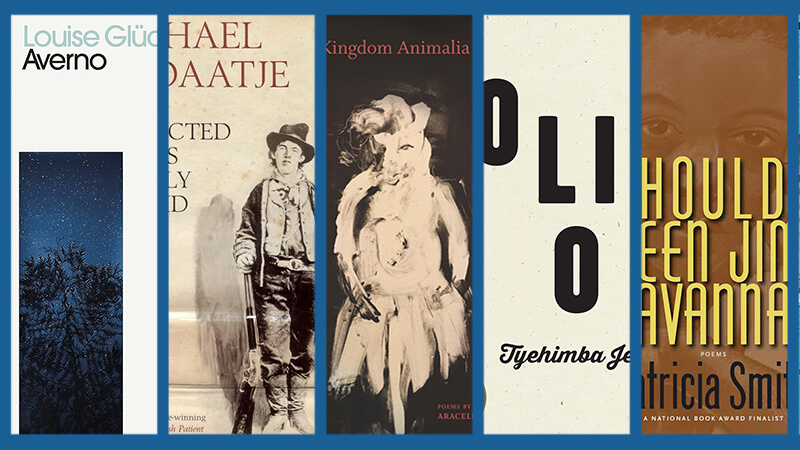How Poet Safia Elhillo Is Creating A Safe Space For Black Muslim Women Through Her Writing
The title of the second poetry collection by Safia Elhillo is taken from a misheard song lyric. “In Ghetto Supastar [by Pras, featuring Ol’ Dirty Bastard and Mýa, 1998], there’s a line; ‘I’m hanging out partying with girls that never die,’ she says, on a video call from Los Angeles. ‘The image that conjured up was this party with immortal girls. I was fascinated by it.’
Girls That Never Die, the third published volume from the award-winning Sudanese-American poet, takes this imagined premise and brings it to life with lyrical alacrity. The result is a funny and nuanced account of the violence, shame and pain of womanhood liberated from mortality. “I was thinking about how the threat of death is usually used as the governing tool to get women and femme people to fall in line under patriarchy,” she observes. “It was a helpful thought exercise to just sit down and allow myself the fantasy of a world in which that threat doesn’t exist: what are you going to do to me?”
There is an enchanted freedom thrilling throughout the collection of poems, seen just on the horizon, often through tears or sought after in moments of trauma or vulnerability – the push and pull between brutal reality and imagined deliverance. One notable moment sees a woman saved from stoning by a flock of birds. To some, this would be magical realism but to Elhillo it is a mere transcription of what she lovingly calls the “spooky, hyperbolic people” she comes from. “I’m never coming up with anything that doesn’t feel like it already exists in the world that I live in,” she says, with a jovial shrug. “The birds... that’s actually imagery borrowed from a Surah in the Quran.’”
“I’m becoming increasingly aware of the tone in which I talk about my experience of being a Black, Muslim woman,” she continues. “I don’t want it to come across that I’m having a bad time because of these things, you know, I’m having a great time because of these things! I’m having a bad time because the world is racist and difficult.” She has a beautifully considered approach to depicting her identity. As she herself notes: there is conscious “silliness and absurdity woven into the tragedy, the angst and the violence”. Her work succeeds in this shrewd balance. It has a vibrancy that can only truly be the result of an uncompromised voice. “The only way that I can create the conditions where I’m able to do my work is to not write to the people who believe the worst things about my community,” she says. “I’m not talking to those people. Those people are none of my business.”
Safia Elhillo says that this was the book she was most afraid to write because it was the first time she put herself fully and completely into the work. Indeed, the book begins with a poem about her birth. Yet far from memoir, this is a plurality of voices, an exquisite cacophony of her imagined immortal girls. “My hope is that a Muslim woman might come to this book and have that feeling of crowdedness and community,” she says. “I want her to read something that is welcoming and familiar and nurturing and soothing, and also maybe a little funny and a little frustrating.”

The collection, published this February in the UK, is already a US bestseller and has matched the promise of her award-winning last work Home Is Not A Country. With her unguarded imagination, I wonder why she has never considered a prose novel. “The existing criteria around eloquence and fluency and being articulate have no bearing on the success of a poem,” she replies. “It is a space more than any other form that really celebrates and rewards strangeness. It is a safe place for me to play in.”
Safia Elhillo Shares Her 5 Favourite Poetry Collections
- Kingdom Animalia by Aracelis Girmay – “Aracelis Girmay should be the poet laureate of tenderness. She is one of my all-time favourite poets. I could include all her books on this list, but Kingdom Animalia is where I first fell in love with her work. She is directly responsible for my obsession with ampersands in my poems.”
- The Collected Works Of Billy The Kid by Michael Ondaatje – “This is the book that first got me interested in ‘project books’, where the poems all have a recurring conceit or set of themes. I love it for its strangeness and its obsession and its surprising softness.”
- Shoulda Been Jimi Savannah by Patricia Smith – “Patricia Smith is one of our greatest living poets. Each of her books is different from the others (what can’t she do?) but this one is my first love. It taught me that poems can be cinematic. And I’ve been trying to write a version of the poem Otis & Annie / Annie & Otis since I first read it.”
- Averno by Louise Glück – “Louise was one of my most important teachers and this is my favourite of her books. Blunt and plainspoken and austere and still so vivid, so pretty. Such surprising musicality. My novel Bright Red Fruit owes a lot to the Persephone poems in this book.”
- Olio by Tyehimba Jess – “I truly think this book is one of the great formal achievements of our time and informs my interest in the contrapuntal form. It’s a masterclass. Absolutely brilliant and fascinating.”
Girls That Never Die by Safia Elhillo is out now
Get the best of Service95
delivered straight to your inbox
By subscribing to our newsletter(s) you agree to our privacy policy. You can unsubscribe at any time.








